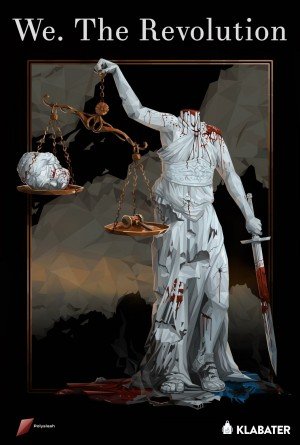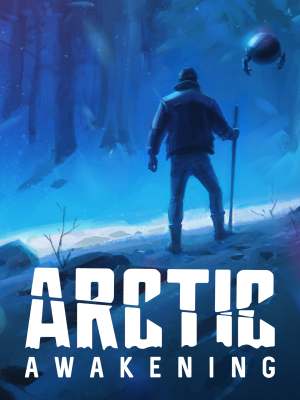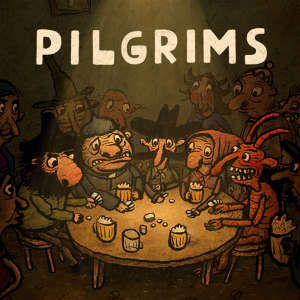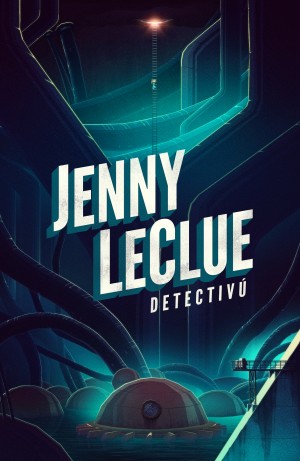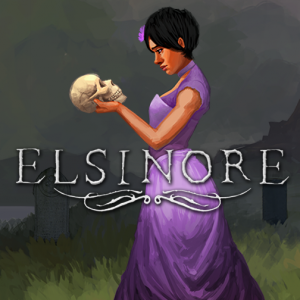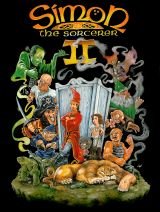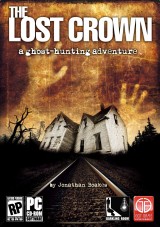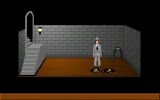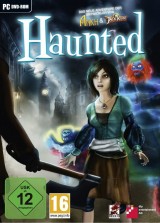Review for We. The Revolution
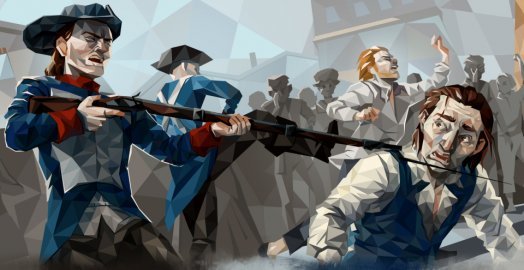
History often seems dry and remote; it can be difficult to remember that all those names, dates and events in old books aren't just facts to be learned but relate to real people who went through real pain and experienced real joy. Like people who were swept up in the French Revolution, which was just as viscerally real, complex and messy as anything happening today. With We. The Revolution, Polish developer Polyslash has made a valiant attempt to evoke the spirit of late 18th century Paris, from grand political machinations to petty squabbles over watered-down beer. At once fantastically atmospheric and emotive yet arguably too complex and confusing for its own good, it's an ambitious, unfocused, but ultimately memorable take on a pivotal moment in history.
Revolutionary Tribunal judge Alexis Fidèle is a fine upstanding family man. At least, he tries to be, when the drink and the dice aren't calling to him. Yes, he has some domestic problems (as his long-suffering wife Mathilde doesn't hesitate to point out), but he's fair and just. Most days, anyway, so long as he's not under too much pressure. Because this is Paris during the Revolution; tempers everywhere are running hot and political intrigues abound. The right man could really make friends, influence people, and climb the ladder to greatness. He just might have to... compromise a little here or there. See things the right way, and turn a blind eye when needed. Or he could stand up for what's right and learn to watch his back, lest any knives flash out of the shadows.
That's the picture We. The Revolution wants to paint. This is a world drenched in shades of grey, where there are two sides to every story. Powerful interests jostle for power and attention while the common folk just try to find ways to get by. At its best, it does indeed envelop you in a powerful sense of place and present you with poignant vignettes of the struggles everyone from the highest to the lowest in society must have faced in dealing with those crazy, chaotic times. But it also tries to do too much, piling on a confusing and needlessly complex array of different mechanics, and it ultimately tantalises with the illusion of choice rather than real options.
Let's start, though, with that atmosphere. The first thing that hits you when you begin is just how beautiful the game looks. Every scene is rendered in a hand-drawn approximation of a low-polygon style. Faces look like they've been roughly hewn with large flat facets, but it's a painterly design choice that comes across as strikingly artistic rather than crude. Add in a dramatic colour palette that, for example, picks out dancing firelight in the cold, grey-blue dark or adds an ironically golden light to the court's dark proceedings, and the results are truly stunning. Much of your time is spent looking out across your desk at the courtroom or at the dining table with your family, but in between dramatic comic book-like panels slowly reveal the story, with just enough animation to draw the eye. Later on your view becomes more varied in other ways too, but I'm getting ahead of myself, so we'll come back to that later.
The sound design is similarly memorable, consisting of a string-led orchestral score that varies from slow cellos to frantic violins, combined with an ambient background that includes everything from marching troops and baying crowds to peacefully singing birds. The overall mood, as you might expect, is slow and mournful, though becoming increasingly tense as time goes on. The voice work is also good but somewhat sparing, accompanying the comic book panels and essentially serving to highlight important moments. If there's a fault here, it's in the lack of range: the actors manage to at times deliver melodramatic lines with due seriousness, but can struggle a little with the rare moments of levity.
At its core, We. The Revolution is seemingly about justice. As a judge, it's your job to hear cases, question witnesses and defendants, and ultimately decide their guilt or innocence. Starting with a written report and other documents such as letters, the first step is to tease out lines of enquiry by identifying whether particular people, places, items, or events represent things like witnesses, evidence, motives, or proof of character. Making a correct connection unlocks a question, but you're only allowed a small number of mistakes and have to avoid falling into traps laid by irrelevant options. Make too many mistakes and you won't be able to unlock all possible questions, making the case that much harder to solve.
This done, you can go on to question the defendant and sometimes other witnesses in an attempt to get at the truth. Or you can focus more on giving the right people the verdict they want, because everyone has their own idea of what's fair and just, and you can't please everyone. Ultimately, as with Lucas Pope’s Papers, Please, it winds up being less about doing what's right and more about doing what's expedient. You're asked about certain details of each case and marked down if you get them wrong, but coming to a verdict is more about pleasing the different groups involved than genuinely determining guilt or innocence. Do what they want and they'll love you, but go against them too much and things could go very badly; what's one more dead judge, after all?
First, there's the jury. I was never totally sure what role they played (you decide the verdict, and your decision is final), but they do form their own opinion, and going against it too often will hurt you later. Then there are four factions to placate: the common folk, the revolutionaries, the aristocracy, and your own family. Icons at the top of the screen show which way the latter four groups want you to go, while a meter for the jury in the middle left fills up or depletes as you question those involved. In addition, many of the questions are marked with icons to show how the jury will respond to the answer, meaning you can manipulate them by deliberately not asking all possible questions if you want. Finally, when it comes time to actually render a verdict, a bar chart shows you exactly how each possible outcome will affect each group's opinion.
Combine all this with the fact that many of your cases come down to conflicting reports of who did what and why, and it's hard not to just concentrate on balancing out your decisions to keep everyone reasonably happy. That's presumably at least part of the point, and it did feel genuinely uncomfortable the first time I was pressured into sending someone I believed was innocent to the gallows. On the other hand, it's also a bit of a shame, as the cases are often fascinating glimpses into revolutionary life. These are people committing petty crime for bread to feed their families, or facing execution for falling asleep, exhausted, on guard duty. There are dodgy architects, treasonous vicars, and a hermit who might have poisoned a well, not to mention a fair few celebrities. Personally, I'd rather have focused on delving into what actually happened and how the letter of the law can conflict with the spirit of natural justice. Instead, that took a back seat to keeping my stats looking good.
This is just the first hint of how enamoured the game is with its own complex mechanics, and how getting caught up in performing well on all the various statistics you're presented with ultimately winds up pulling you out of the emotional, atmospheric world and into simply playing a game. At the end of every day, you go home to your family and (on most days, at least) choose how to spend the evening. Preparing for the following day's cases? Playing with your son? Every choice has consequences for your relationships with your wife, children, and father, which are again represented by meters that fill up or empty depending on who you choose to spend time with. You're again shown what the potential consequences of your choices are, and your only reward is seeing the meters change; you never actually watch your evening play out, and rarely feel much emotional connection.
And that's only the beginning of the systems at play here. Check out the journal lying on your courtroom desk and you’ll find a bewildering list of events that have happened in response to the choices you've made, all with their own impact on your stats. In addition to the faction approval scores, these include your reputation score (which affects how hard or easy it’ll be to sway and recruit people, especially later in the game) and how many influence points you have. Influence points are a kind of currency that can be spent, for instance, to force through particular choices, gain insight into someone's mood, or conduct additional investigations.
The rest of the interface continues this odd mix of in-world realism with meters, bar charts and other more technical elements. In court, you look out at the defendant and jury over a desk strewn with papers (the evidence for the current case), two folders (one listing the public prosecutor’s questions, such as whether the crime was counter-revolutionary in nature, and the other awaiting your verdict) and the aforementioned journal. In the top left, a wax seal-like button brings up a screen showing the political hierarchy and the prominent figures you’ve encountered. Icons showing the factions’ expectations hang above the defendant’s head, while the jury also gets a meter showing their opinion.
After reading through the evidence, you’re shown a circular interface with facts (such as people or events) around the outside and possible categorisations (such as “evidence” or “extenuating circumstances”) around the inside; uncovering questions is a matter of clicking on a fact and then the appropriate category. Then you click on the defendant or witness to interrogate them, with their responses popping up as speech bubbles. Finally, the verdict folder offers a list of possible judgements, with a bar chart showing what your current choice will do to the factions’ opinions of you. If the results aren’t favourable, you’re free to change your mind until you sign it and apply your personal seal. (And it is your seal: early on, an official appears at your dinner table and asks you to design it.)
As the game develops, even more elements come into play. There are events that play out over several days as you attempt to get your way or take revenge for what others have done to you and yours. On any given day, these involve making decisions (do you send in a bunch of thugs, or take a more diplomatic approach?) or persuading prominent people. The latter involves taking particular stances (such as aggressive, manipulative, or playful) on topics they care about and hoping you've guessed right as to which stances will be effective. You can also use this persuasion technique on the crowds that gather for the executions that follow your verdicts in the hope of improving your reputation.
After a while, you're moving characters (represented as game pieces) around a map of Paris in an attempt to maintain order. You're also put in charge of managing the construction of a statue, gaining bonuses of different kinds for prioritising work on that over, say, your family. Eventually you'll be managing open confrontations, choosing attack strategies for groups of soldiers in small-scale battles, and trying to spread your troops across the map to best advantage. Oh, and you'll also wind up playing a dice game for some pretty high stakes.
Put all of that together, and combine it with all the bonuses and penalties that accrue in your journal due to doing well or badly, and the net result can be an acute sense of overload. With so many disparate and barely explained gameplay elements and so much interplay between them, I wound up making somewhat arbitrary decisions and ignoring most of what was going on with all the different statistics.
That said, making you feel confused and out of control could well have been the aim all along. It certainly felt as I played as if many of my encounters were heavily weighted, sometimes in my favour and sometimes against me. That was particularly clear in the dice games, where the rolls really didn't seem fair. I suspect it probably is possible to either win or lose, but the chances are that things will go the way the game wants them to go. On the upside, that also means you'll be saved from many of your poor choices by an unexpected stroke of luck.
This sense of railroading is pervasive. Try as you might to go against the flow, in my case by trying to keep my head down and playing nice with everyone, it never really feels like your choices matter. All the world's a stage, and you're merely a player upon it, your role set from the start. Your life is doomed to tragedy and melodrama, with bereavement, heartbreak, and even a long-lost brother all finding their way into the mix as a counterpoint to the larger-scale events playing out around you. Circumstances inevitably spiral slowly out of control, beginning in relatively quiet times with the Revolution little more than a backdrop to everyday life and culminating in riots in the streets and summary executions. The feeling of steadily mounting dread and terror comes through loud and clear, even if many of the plot twists can seem a bit formulaic. At one point, I even ran across a hint that all this may not even be real, though that notion was promptly dropped and was likely a means of getting me back on track after a bad run of play. That’s the upside of the railroading approach: you can make mistakes and people can die, but you aren’t allowed to fail outright.
In the end, We. The Revolution just tries to do too much. It looks and sounds lovely and it effectively pulls you into its world, but it's like the developers were never quite content with their creation and felt they had to keep adding more. More minigames. More dramatic plot flourishes. More statistics. There’s certainly plenty to do over the game’s substantial 15-hour playtime, but the end result often feels overstuffed. However, it's still a powerful experience that lingers in the memory, and I definitely feel I now have a better sense of what it would have been like to actually live through those times. If you have a penchant for history and can live with the artificial complexity, this could be a time trip well worth taking.
WHERE CAN I DOWNLOAD We. The Revolution
We. The Revolution is available at:
- GOG -85%
- HumbleBundle


